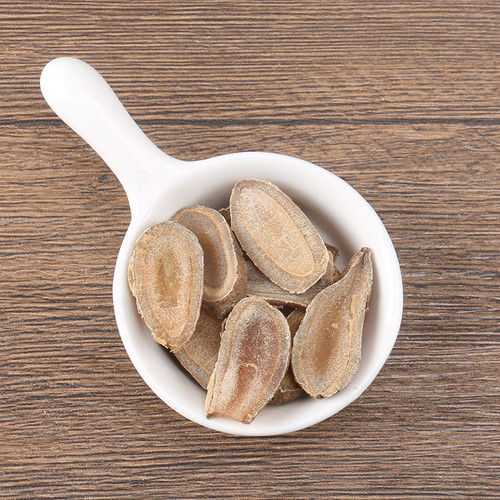Product Overview
Parts used: Dried root tuber
TCM category: Herbs that invigorate the Blood
TCM nature: Cold
TCM taste(s): Bitter Pungent
Meridian affinity: Heart Liver Lung
Scientific name: Curcuma wenyujin, Curcuma longa, Curcuma kwangsiensis or Curcuma phaeocaulis
Use of turmeric tubers (Yu Jin) in TCM
Please note that you should never self-prescribe TCM ingredients. A TCM ingredient is almost never eaten on its own but as part of a formula containing several ingredients that act together. Please consult a professional TCM practitionner, they will be best able to guide you.
Preparation: Wash, moisturize, slice, and dry.
Dosage: 3 - 9 grams
Main actions according to TCM*: Moves Blood, breaks Stasis and reduces associated pain. Regulates the Liver and relieves patterns of Stagnant Qi with pain. Clears the Heart and Cools the Blood. Relieves Stagnation and clears Heat in the Liver and Gallbladder. Relieves jaundice.
Primary conditions or symptoms for which turmeric tubers may be prescribed by TCM doctors*: Amenorrhea Dysmenorrhea Chest pain Abdominal pain Epilepsy Jaundice Delirium Gallstones
Contraindications*: This herb should not be used during pregnancy or by those without signs of Stagnant Blood or Qi. It should also be used with caution by those with Yin Deficiency from blood loss.
Common TCM formulas in which turmeric tubers are used*:
For dysmenorrhea caused by Qi and Blood Stagnation combine turmeric tubers with dong quai (Dang Gui), coco-grass rhizomes (Xiang Fu) and szechuan lovage roots (Chuan Xiong).
For dysuria, painful micturition and/or renal stones combine turmeric tubers with gold coin herb (Jin Qian Cao).
Key TCM concepts behind turmeric tubers (Yu Jin)'s properties
In Traditional Chinese Medicine (TCM), turmeric tubers are plants that belong to the 'Herbs that invigorate the Blood' category. Like the name indicates these herbs tend to stimulate the Blood flow. In TCM they're used to help the circulation of Blood in cardiovascular conditions or menstrual irregularities as well as to treat acute pains caused by Blood Stagnation. They can also be used to treat Blood Stasis in the case of certain tumors, cysts and hardened clots.
Furthermore turmeric tubers are plants that are Cold in nature. This means that turmeric tubers typically help people who have too much "heat" in their body. Balance between Yin and Yang is a key health concept in TCM. Those who have too much heat in their body are said to either have a Yang excess (because Yang is Hot in nature) or a Yin deficiency (Yin is Cold in Nature). Depending on your condition turmeric tubers can help restore a harmonious balance between Yin and Yang.
Turmeric tubers also taste Bitter and Pungent. The so-called "five elements" theory in Chinese Medicine states that the taste of TCM ingredients is a key determinant of their action in the body. Bitter ingredients like turmeric tubers tend to have a cleansing action on the body by clearing heat, drying dampness and promoting elimination via urination or bowel movements. On the other hand Pungent ingredients tend to promote the circulations of Qi and body fluids. That's why for instance someone tends to sweat a lot when they eat spicy/pungent food.
The tastes of ingredients in TCM also determine what organs and meridians they target. As such turmeric tubers are thought to target the Heart, the Liver and the Lung. In addition to regulating blood flow, in TCM the Heart is believed to be the store of the "spirit" which basically refers to someone's vitality. The Liver on the other hand is often referred as the body's "general" because it is in charge of regulating the movements of Qi and body fluids. It also takes a leading role in balancing our emotions. In addition to performing respiration, the Lungs are thought to be a key part of the production chain for Qi and the body fluids that nourish the body.
Use of turmeric tubers (Yu Jin) as food
Turmeric tubers are also eaten as food. It is used as an ingredient in dishes such as Indian curries or Moroccan tajines.










